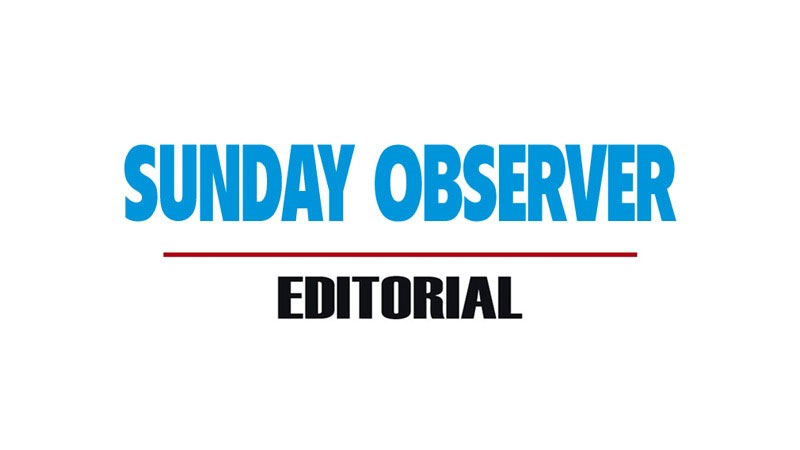Corruption is a cancer that can sap the life out of any country. It was one of the main topics at the past three elections held in this country – Presidential, General and most recently, Local Government (LG). The subject was one of the main campaign planks of the National People’s Power (NPP), which swept all three polls.
Corruption was one of the main factors that prevented Sri Lanka from realising her true potential for nearly 75 years after Independence. On the other hand, the near total elimination of corruption helped another island State just 2,700 Km away to become a developed nation in just a few decades. Contrary to popular opinion, Singapore’s founder Prime Minister Lee Kuan Yew did not have a magic formula or wand to achieve developed status. What he did was clamp down on corruption and ethnic discord.
Most Governments more or less tolerated corruption at the highest levels, including the sprawling bureaucracy. They even inculcated in the public the rather grotesque notion that a “little” corruption is “all right” if some “development projects” are done by the Government. This sanitised the public to accept corruption as a “necessary evil” that would benefit them.
But the stark reality is that corruption has a terrible economic and social cost. A recent report indicated that the country could have lost trillions of rupees in recent times due to unbridled corruption. These are funds that could have been used for actual development projects and public welfare.
Corrupt leaders all over the world are known to inflate the cost of development projects and pocket the difference, which amounts to millions of dollars. They are also known to stash these monies in shell accounts in overseas tax havens. Several countries have recovered substantial portions of such pilfered funds with the help of money trail experts and the World Bank’s Stolen Assets Recovery (StAR) program.
There seems to be some sort of anxiety and frustration over the slow pace of action against corrupt politicians and officials. True, public expectations were rather high that the NPP Government would take swift action to punish these corrupt elements. Alas, the wheels of justice grind rather slowly and besides, the prosecuting authorities should have an iron-clad case to ensure a verdict in their favour, with all the information and technicalities in order. In fact, so many cases brought to Court by the Commission to Investigate Acts of Bribery or Corruption (CIABOC) have been dismissed on technical grounds alone, sometimes even in the face of glaring evidence.
Hence, the recent High Court verdict against two former Ministers is an indication that justice is being meted slowly but steadily against those who have brazenly engaged in corruption and malpractices. The case can go all the way up to the Supreme Court, but what matters here is the crux of the guilty verdict. In that light, it is a significant victory in the battle against corruption. This case, of course, is only the tip of the iceberg as there are many other such cases working their way through the legal system. It also highlights the fact that the wanton waste of public funds is another form of corruption.
In recent years, Sri Lanka has tightened anti-corruption regulations and also enacted an Anti-Corruption Act (ACA). Indeed, a better regulatory environment and stricter laws are necessary to curb corruption at all levels, from a policeman seeking a bribe to let an offending motorist go scot free or a politician/senior official soliciting a commission from a foreign donor or contractor to start a new project. We know of at least two major projects that were halted due to the latter – the Bandaranaike International Airport (BIA) second phase expansion project and the Kadawatha-Meerigama section of the Central Expressway. It is noteworthy that both these projects are again at the implementation stage following the election of the NPP Government.
Then there are mega projects such as the Mattala International Airport which now lie idle without accruing any benefits or income for the country. But this cannot be undone now, so the Government must find ways to make some money off the “world’s emptiest airport” perhaps by turning it into a Maintenance, Repair and Overhaul (MRO) hub for aircraft.
Sri Lanka ranks 121 out of 180 countries on the Transparency International’s Corruption Perceptions Index (2024), which is not really a good place to be for a country aspiring to emerge from a deep economic crisis that was partly caused by corruption on a massive scale. The Government must first address the culture of corruption that pervades the entire society as the initial step of eliminating this cancer from our midst. We must inculcate in young minds that giving a bribe is just as bad as accepting one. A change of attitudes with regard to bribery and corruption could take a couple of generations, but will be worth every cent.









